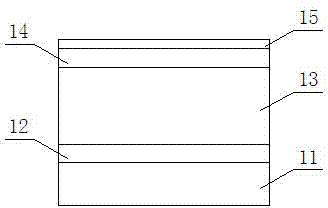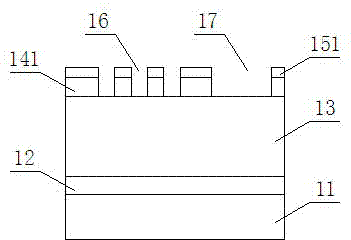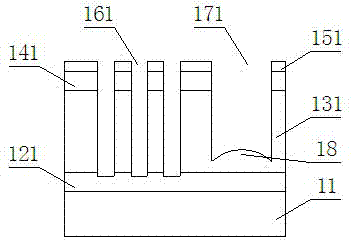Method for forming non-load-effect large size groove
A large-scale, no-load technology, used in electrical components, semiconductor/solid-state device manufacturing, circuits, etc., can solve the problems of fast etching speed, slow etching rate, and connection failure in small-scale trenches, and achieve improved etching. Process performance, the effect of expanding the etching process window, and improving product yield
- Summary
- Abstract
- Description
- Claims
- Application Information
AI Technical Summary
Problems solved by technology
Method used
Image
Examples
Embodiment Construction
[0027] The specific embodiment of the present invention will be further described below in conjunction with accompanying drawing:
[0028] Figure 6-12 It is a schematic structural diagram of the process flow of the method for forming a large-size groove without load effect in the present invention;
[0029] like Figure 6-12 As shown, first, an interlayer dielectric layer (inter layer dielectric, ILD for short) 21 with a thickness of 300A, a barrier layer 22 made of SiN with a thickness of 2500A, and a barrier layer 22 made of SiN with a thickness of 400A are sequentially deposited from bottom to top on the semiconductor structure 2 . A low dielectric constant dielectric layer 23 of silicon oxide (FSG) containing F, a metal hard mask 24 made of TiN with a thickness of 50A, and a metal hard mask 24 made of silicon dioxide (SiO 2 ) oxide layer 25; wherein, the interlayer dielectric layer 21 covers the upper surface of the semiconductor structure 2, the barrier layer 22 covers...
PUM
 Login to View More
Login to View More Abstract
Description
Claims
Application Information
 Login to View More
Login to View More - R&D
- Intellectual Property
- Life Sciences
- Materials
- Tech Scout
- Unparalleled Data Quality
- Higher Quality Content
- 60% Fewer Hallucinations
Browse by: Latest US Patents, China's latest patents, Technical Efficacy Thesaurus, Application Domain, Technology Topic, Popular Technical Reports.
© 2025 PatSnap. All rights reserved.Legal|Privacy policy|Modern Slavery Act Transparency Statement|Sitemap|About US| Contact US: help@patsnap.com



